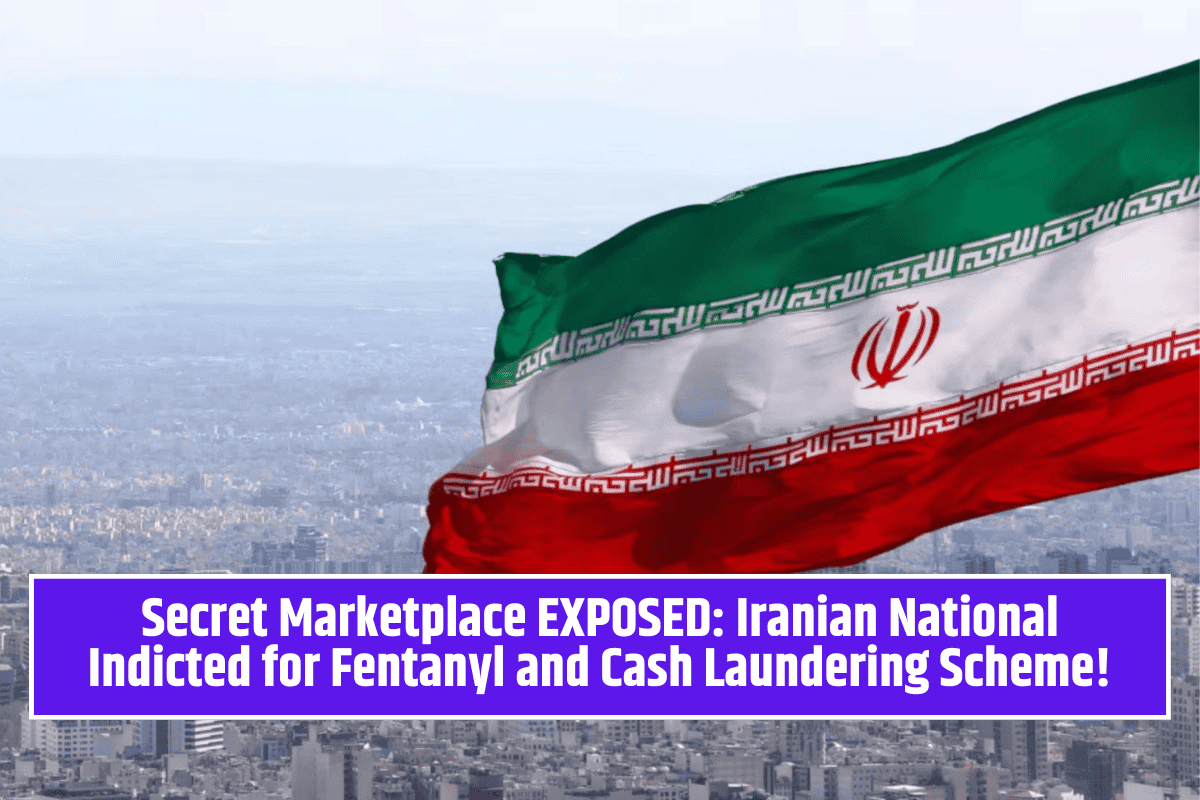In a major international crackdown on cybercrime and drug trafficking, the U.S. Department of Justice has charged Behrouz Parsarad, an Iranian national, for operating Nemesis Market, a massive dark web platform used for selling illegal drugs and criminal services. Authorities say the dark web marketplace had over 150,000 users and was responsible for tens of thousands of drug deals involving deadly substances like fentanyl and heroin.
What Is Nemesis Market?
Nemesis Market was a hidden online platform on the dark web, launched in March 2021. It operated similarly to an illegal e-commerce site, offering drugs, counterfeit currency, stolen personal data, fake IDs, malware, and money laundering services. All transactions were made in cryptocurrency, keeping the identities of buyers and sellers hidden from law enforcement.
According to the indictment, by the time it was taken down in March 2024, Nemesis Market had processed over 400,000 orders, including:
- 55,000+ stimulant orders (meth, cocaine, etc.)
- 17,000+ opioid orders (fentanyl, heroin, oxycodone)
Some of the drugs were purchased by undercover law enforcement agents and later tested in labs, confirming they contained lethal substances such as fentanyl, acetylfentanyl, and protonitazene—highly dangerous opioids that are responsible for many overdose deaths.
Who Is Behrouz Parsarad?
Parsarad, 36, is from Tehran, Iran. He is accused of founding and running Nemesis Market from 2021 to 2024. According to the U.S. Department of Justice, Parsarad is charged with:
- Conspiracy to distribute controlled substances
- Distribution of controlled substances
- Money laundering conspiracy, including hiding drug profits using cryptocurrency mixing tools
Authorities say Parsarad not only made it easier for people to sell illegal goods, but also helped criminals hide their money through advanced digital laundering methods.
How Was Nemesis Market Shut Down?
In March 2024, U.S. law enforcement teamed up with authorities in Germany and Lithuania to seize Nemesis Market’s servers and infrastructure. This operation effectively blocked the marketplace and prevented millions of dollars worth of drugs from being trafficked further.
The investigation was led by the FBI’s Cleveland Division, with help from:
- The DEA
- The IRS-Criminal Investigation
- International law enforcement in Germany, Lithuania, Türkiye, and the British Virgin Islands
In March 2025, the U.S. Treasury Department’s Office of Foreign Assets Control (OFAC) also announced financial sanctions against Parsarad for his role in managing Nemesis Market. OFAC revealed that the platform facilitated over $30 million in drug sales during its operation.
What Happens Next?
If found guilty, Parsarad faces a minimum of 10 years in federal prison and could receive a life sentence. The charges highlight how seriously the U.S. government is taking dark web crime and opioid distribution, especially given the ongoing public health crisis caused by fentanyl and similar drugs.
This case is part of J-CODE (Joint Criminal Opioid and Darknet Enforcement), an FBI-led initiative that brings together agencies like the DEA, Homeland Security Investigations, and the Postal Inspection Service to fight opioid trafficking online.
The takedown of Nemesis Market and the indictment of Behrouz Parsarad send a strong message to cybercriminals around the world. The dark web is not beyond the reach of law enforcement. With international cooperation and advanced digital tracking, the Justice Department is aggressively going after those who exploit technology to harm communities through drugs and cybercrime.
The Nemesis Market case shows just how dangerous and widespread online drug trafficking has become—but also how determined global agencies are to shut it down.














